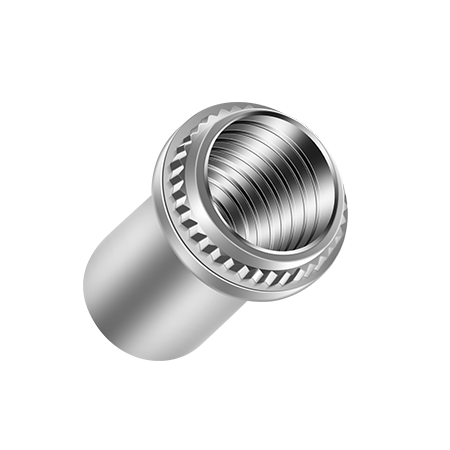In marine environments, constant exposure to saltwater, humidity, and other corrosive elements poses unique challenges for fasteners and connectors. Waterproof Nuts are essential in these settings, as they provide a robust barrier against moisture and corrosion, ensuring long-term durability and safety in applications like boats, docks, and other coastal installations. This article explores the specific benefits of Waterproof nuts in marine settings and why they are a go-to solution for withstanding the harsh effects of saltwater.

Marine environments are particularly harsh due to the presence of salt in the air and water, which accelerates corrosion in most metals. Unlike standard nuts, Waterproof Nuts are designed with materials and seals that resist corrosion even under prolonged exposure to saltwater. The nuts are typically crafted from corrosion-resistant metals, such as stainless steel or brass, which can endure the continuous assault of salt without weakening or rusting.
For added protection, Waterproof Nuts also feature a rubber or silicone O-ring that seals the connection, blocking moisture and preventing salt particles from reaching the metal threads. This feature not only extends the lifespan of the nuts themselves but also preserves the integrity of the connected components, reducing maintenance and replacement needs.
Waterproof nuts play a crucial role in maintaining the safety and structural integrity of marine installations. For instance, on boats and ships, these nuts are used to secure essential fixtures, from railings to navigation lights, where any loosening or failure due to corrosion could jeopardize the crew’s safety. Similarly, on docks and piers, waterproof nuts ensure that key structures remain secure even after years of exposure to fluctuating tides and harsh weather conditions.
The sealed design of waterproof nuts helps prevent loosening due to water ingress, which can be a common issue in salt-laden environments. This stability is particularly important in dynamic applications, such as boats, where vibrations and movements are constant.
Marine equipment and installations are costly to maintain, and repairs in saltwater environments are labor-intensive and expensive. Waterproof nuts provide a cost-effective solution by reducing the need for frequent replacement due to rust or corrosion. Their robust design helps keep bolts and connected parts in good condition for longer, which translates to lower maintenance costs and fewer operational disruptions.
In addition, waterproof nuts’ resistance to corrosion makes them ideal for hard-to-reach places where replacing fasteners would otherwise require significant effort or specialized equipment.
Waterproof nuts are versatile and can be used across a range of marine applications. On boats, they are often employed in securing external fittings such as masts, ladders, and railings, as well as on engine and transmission mounts, which are frequently exposed to splashing saltwater. On docks, they secure cleats, posts, lighting fixtures, and other important attachments that must remain intact under variable environmental conditions.
For coastal installations, such as piers, seawalls, and offshore platforms, waterproof nuts are integral to anchoring structures in place and protecting them from the constant wear caused by waves and salt exposure. Their adaptability to different materials, including wood, metal, and composite structures, makes them a highly versatile choice.
Waterproof nuts are engineered to handle extreme marine conditions, including fluctuating temperatures, UV exposure, and high levels of humidity. Seals are typically made from high-quality materials like silicone or EPDM rubber, which retain their waterproofing properties under both hot and cold conditions, ensuring the nuts continue to function optimally across seasons.
For saltwater environments, stainless steel waterproof nuts are among the most durable options, as they can resist high levels of salt and humidity without degrading. Some variations are further coated for additional protection, providing an even stronger barrier against corrosion and reducing the risk of rust “bleeding” into surrounding materials.
Because waterproof nuts do not need to be replaced as often as standard nuts, they contribute to reduced waste, a key environmental benefit. In marine and coastal areas where sustainable practices are increasingly prioritized, waterproof nuts help reduce the number of corroded parts that need to be discarded, minimizing pollution and supporting more eco-friendly operations.
Furthermore, by maintaining the structural integrity of marine installations, waterproof nuts help prevent parts from loosening or breaking free, which could potentially lead to marine debris that is harmful to the surrounding ecosystem.
Waterproof nuts are invaluable in marine applications for their corrosion resistance, durability, and ability to maintain secure connections in harsh environments. From boats and docks to coastal installations, these specialized fasteners protect against saltwater-induced wear and extend the lifespan of marine equipment, reducing maintenance costs and enhancing safety. For anyone involved in marine construction or maintenance, investing in high-quality waterproof nuts is a practical and cost-effective way to ensure that installations can withstand the unique challenges of saltwater exposure.